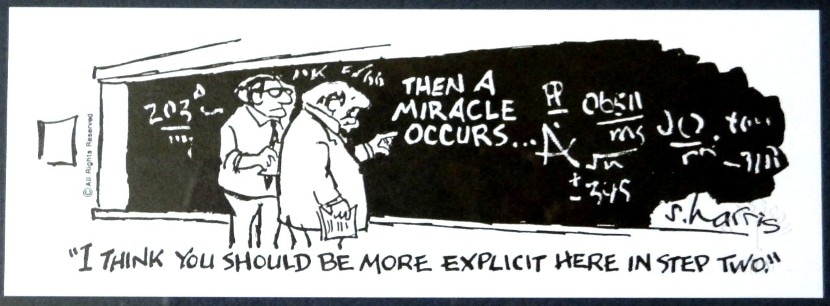|
80,000 Hours just updated their article on the world’s biggest problems, which they’ve spent 8 years researching and prioritizing. I used the research from their original as a major component in my article Prioritizing World Problems. After a brief introduction outlining the good reasons to focus on global health issues instead of problems at home in developed nations, the authors quickly switch to what they feel is a better direction based on the following premises, Which would you choose from these two options? There are two different issues with this prioritization.
First, the choice to value future generations needs to be examined. The authors simply state, “And if you value future generations,” without giving any reason to do so other than the claim that “most people choose the second option” of preventing “100 people from suffering 100 years from now”. That appears to be a preference, rather than an empirical argument. It is a common sense argument and something that I imagine most people believe, but not something that is supported by any data or reason. Furthermore, even if it were true that the most people did value the suffering of future generations, so what? Future generations necessarily require having children in order to come into existence and all evidence and reason suggests that having children is an unethical act. Therefore, investing in preventing future generations from suffering is a bit like throwing up your hands and making the lives of future slaves better off. The correct action to take is not making future slave lives better, but getting rid of future slaves altogether so the problem doesn’t exist. By analogy, the correct action to take is not valuing future generations, but getting rid of future generations altogether. As Lawrence Krauss has stated, “The purpose of education is not to validate ignorance, but to overcome it.” In this case, 80,000 Hours is validating ignorance about the actual problem, i.e. future generations existing at all, instead of attempting to pull it out by the roots. Second, the entire case being made by 80,000 Hours is that we should prioritize problems to have the most impact. They do this by using reason and empirical evidence, putting aside the problem of future generations for now. However, none of that work matters if people don’t value evidence over faith. Take a look at the list of global problems:
Many of these problems already have solutions. The problem isn’t actually the problems. The problem is that many people don’t let the evidence convince them that these are serious problems or that we can do anything about them. For example, the major global health issues could be dealt with tomorrow if the political will existed. We know how to treat malaria, TB, and issues of family planning. What stands in the way of these problems being dealt with rationally is not generating a list of priorities as 80,000 Hours has done so well, but convincing people who hold ideas based on faith that they should be convinced by evidence instead. “Superintelligent AI could destroy us all and put everyone out of work, dramatically upsetting our societies.” “Technology has always worked out in the long-run. We can control it as it is created and the programming will never get beyond us.” “Climate change is an existential threat to humanity and many other species.” “God will save us via the rapture soon and besides, the other species were put here for our use anyway.” “Free trade is not the major reason you’ve lost your job in manufacturing.” “Free trade is the reason my job is gone and we can bring it back if we take protectionist measures to impede trade with China and other low-wage countries.” “Family planning benefits everyone and contraceptives should be made readily available.” “My faith says otherwise.” Of course, all of these retorts are exercises of sticking one's head in the sand. Evidence tells us they are incorrect. The correctness or incorrectness of any statement is useless if we are willing to ignore it and that is exactly what faith is allowing much of the world to do with some of our biggest and most urgent problems. We cannot solve any of the global priorities without first admitting that the issue of faith is first on the list of global priorities. It is problem number one. Even as scientists generate better and better solutions to these and other problems, the faithful simply close their eyes and plug their ears more resolutely. What does this mean? Keep the research, the problems, the prioritization. Simply add overcoming faith to the top. It's time to convert the faithful to science.
0 Comments
Leave a Reply. |
Archives
November 2017
|

 RSS Feed
RSS Feed